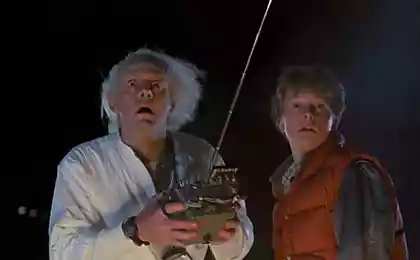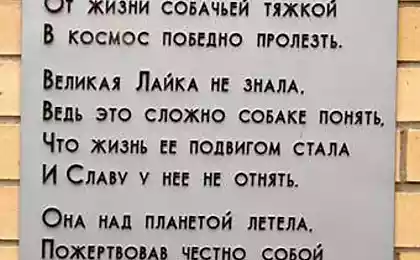667
Poetry salesrooms
91,396,785
Finance - is a colorful business, though no one notices.
A long time ago, for example, all you needed to open a bank - to get a bench. You are exposed to the bench area in medieval Italy, sat behind her and started to work. Italian equivalent of the word bench - «banco», hence there was a modern word bank.
Sometimes, of course, the bankers could run out of money, and when it happened - in the years before the invention of the program TARP [ Troubled Asset Relief Program - an initiative of the US government to rid financial institutions of distressed assets, introduced by the US government as part of measures confrontation Financial The crisis of 2008 - hereinafter remarks interpreter i>], forms of business salvation from bankruptcy and the appearance of Ben Bernanke - they solemnly broke the bench in front of them. It was already "broken bench" or «banca rotta» or "bankrupt." Despite the apparent reliability of trading terminals, we all hope, wait for just such resolute action against specific companies by Janet Yellen and her ax [ Janet Yellen to 3 February 2014 led by the US Federal Reserve i>].
If you look closely, it is clear that the money is hidden mass of just such strange images.
I would like to tell you about this eternal ingenuity of financiers. Popular belief that bankers do not think about anything except profits. But their minds aims to create poetic inventions. Money here plays a secondary role. And if modern poets had half a linguistic inventiveness of modern bankers, they would have sold much better.
Or would earn more "bucks." The only reason that people do get "Bucks» [ English. bucks i>], that the Native Americans were not interested in coins or checks, and preferred to be rewarded with animal skins [ English. buckskins i>].
Accustomed to "save for a rainy day» [ English. nest egg - «nest egg" for a rainy day nest-egg i>]? This is a popular practice of farmers, distributing chickens, which lay in a nest nest-egg (dummy eggs that leave the nest to attract hens). The hen does not leave the nest, hoping to sit dummy and casually puts a few more of these eggs. Hence the idea that nest-egg, nest egg - capital and real eggs - accrued interest.
Mortgage loan [ or, in the broadest sense, a loan at all i>] - this is a way to literally risk life [ from the English. mortgage, where the mort - «signal the death / Death», gage - «BS / bet» i>]. Even hedge funds, eventually taking its name from the bush varieties [ English. the hedge i>], which were planted on the edges of the site, where usually grow wildflowers. The idea that a small loan can "cover" to insure [ English. to hedge i>] larger loans, guaranteed commodity values. Hence the idea of hedging gone when the money is placed directly on the different outcomes of a particular event. And from there originate modern investment pools. However, the very metaphor was first noted in the works of metaphysical poets John Donne.
In the edition of Aesop's fables 1490 supplement contains previously unpublished. This is a story about two people who signed the deal with the monkeys to sell the bearskin before the bear capture. They believe that the bear hunting - a simple task, but when it comes down to it, both from fear fold - one climbs up a tree, and the other pretends to be dead.
The moral of the fable: do not sell the skin of not killed bear. Any financier, however, recognize the principle of sale is uncoated (game on the decline). This maxim was so well known in the XVIII century, those who speculated on sales, then called "sellers bear skins," and then, for simplicity, were renamed bears. For the first time in such a "fiscal" context, the use of the word was recorded in 1719, and within five years the magic of Finance has united in a couple of bears and bulls, apparently only because of the fact that they both - large animals, whose names [ in English i>] start with a «B».
This modest beginning has witnessed the emergence of the financial zoo. Financiers in their arguments resorted to animal associations in their minds lives a giant zoo. Here and dogs, or ineffective action, which quotations have fallen and continue to fall even after the "dead cat leap» [ dead cat's bounce - there is a common belief that cats always land on all fours and cheerfully flee away. However, if the dominant throw a dead cat, she will jump up and if, then not much, and certainly more will not run. Therefore, the "jump / dead cat bounce" in the market is when a (falling) market breaks up briefly, and then continued to fall i>]. And "pop-urchins» [ English. porcupine provisions, literally - "porcupine supplies» i>], which should protect your company from hostile takeovers by needles urchin [ porcupine i>] - sometimes these same actions are called shark repellent.
Meanwhile, the deer [ English. stags, speculators i>] buy new assets in the hope of a quick return on investment. Black swans appear from nowhere when dishonest broker "wind the" actions to increase demand, to sell some of their stocks. And when dishonest speculators laid off, the remaining dealers, huddled in a tight circle to keep warm, called penguins. Dow Jones Dogs bark, but the caravan moves on. Bulls make money. Bears make money. And pigs (PIGS) are going to be slaughtered.
PIGS - an acronym for a group of economically weak countries - Portugal, Ireland, Greece and Spain. They could call I.G.S.P. or GSIP, but analysts need to find even poetic relationship between the letters of the alphabet. Take, for example, the tremendous complexity of BLT or trading bonus: win with this approach comes instantly, but usually did not last long and disappear no later than spoiled sandwich with bacon, lettuce and tomato [ English. BLT - bonus-led trading / bacon, lettuce and tomato i>]. Some people think too much about it, rather than do the work. How much wasted effort as failures occurred in this area, until someone came up with to "make the dirt» [ English. filth, mud i>] - FILTH, Failed in London, Try Hong Kong [ did not work in London, try Hong Kong i>].
Even the rhymes that had no place in modern poetry thrives in trading floors in London and New York. Pump and dump. Rank and yank. Short and distort [ «pump and dump", "Sort and throw," "short and distorted," all of this - examples of market manipulation tactics i>]. Financial control as only want to perform actions in the names of which lies the harmony of sounds. Their maxim is akin to ancient examples of folk wisdom.
Take for example the following sayings: «Ne'er cast a clout till May be out» [ literally - "not worth ahead of time - before the end of May - to dress in light clothing," saying the May chills i>], «Marry in May and rue for aye» [ verbatim - 'to get married in May - a lifetime [about it] sorry, "May is traditionally considered an unlucky month for weddings i>],« Sell in May and go away » [ literally "sell in May and go away» i>]. The first two proverbs arose in the Middle Ages, but last appeared in 1979 and due to the fact that in the summer months, the stock market is dominated by "bearish" influence.
Such poetry can be surprisingly alive. Here, for example, «They're crying; I'm buying »[« they cry, I buy » i>] - the phrase immediately draws us to the discerning buyer, elbows to fight their way among the funeral procession of mourners, with a bundle of notes in his hand. Baudelaire would kill for such a shocking and surreal image.
But the financial slang can easily give a lot more of such poetic masterpieces.
In many thriving industries meaningless, lifeless jargon. But not only in financial environment - not on Wall Street, London audio. Shopping facilities - the last refuge of these poets gathered in a tight circle - like penguins.
By the way, the term "finance" is of Latin origin and dates back to the words «final» and «finish». So let's get to this round out.
Source: habrahabr.ru/company/itinvest/blog/226533/
Finance - is a colorful business, though no one notices.
A long time ago, for example, all you needed to open a bank - to get a bench. You are exposed to the bench area in medieval Italy, sat behind her and started to work. Italian equivalent of the word bench - «banco», hence there was a modern word bank.
Sometimes, of course, the bankers could run out of money, and when it happened - in the years before the invention of the program TARP [ Troubled Asset Relief Program - an initiative of the US government to rid financial institutions of distressed assets, introduced by the US government as part of measures confrontation Financial The crisis of 2008 - hereinafter remarks interpreter i>], forms of business salvation from bankruptcy and the appearance of Ben Bernanke - they solemnly broke the bench in front of them. It was already "broken bench" or «banca rotta» or "bankrupt." Despite the apparent reliability of trading terminals, we all hope, wait for just such resolute action against specific companies by Janet Yellen and her ax [ Janet Yellen to 3 February 2014 led by the US Federal Reserve i>].
If you look closely, it is clear that the money is hidden mass of just such strange images.
I would like to tell you about this eternal ingenuity of financiers. Popular belief that bankers do not think about anything except profits. But their minds aims to create poetic inventions. Money here plays a secondary role. And if modern poets had half a linguistic inventiveness of modern bankers, they would have sold much better.
Or would earn more "bucks." The only reason that people do get "Bucks» [ English. bucks i>], that the Native Americans were not interested in coins or checks, and preferred to be rewarded with animal skins [ English. buckskins i>].
Accustomed to "save for a rainy day» [ English. nest egg - «nest egg" for a rainy day nest-egg i>]? This is a popular practice of farmers, distributing chickens, which lay in a nest nest-egg (dummy eggs that leave the nest to attract hens). The hen does not leave the nest, hoping to sit dummy and casually puts a few more of these eggs. Hence the idea that nest-egg, nest egg - capital and real eggs - accrued interest.
Mortgage loan [ or, in the broadest sense, a loan at all i>] - this is a way to literally risk life [ from the English. mortgage, where the mort - «signal the death / Death», gage - «BS / bet» i>]. Even hedge funds, eventually taking its name from the bush varieties [ English. the hedge i>], which were planted on the edges of the site, where usually grow wildflowers. The idea that a small loan can "cover" to insure [ English. to hedge i>] larger loans, guaranteed commodity values. Hence the idea of hedging gone when the money is placed directly on the different outcomes of a particular event. And from there originate modern investment pools. However, the very metaphor was first noted in the works of metaphysical poets John Donne.
In the edition of Aesop's fables 1490 supplement contains previously unpublished. This is a story about two people who signed the deal with the monkeys to sell the bearskin before the bear capture. They believe that the bear hunting - a simple task, but when it comes down to it, both from fear fold - one climbs up a tree, and the other pretends to be dead.
The moral of the fable: do not sell the skin of not killed bear. Any financier, however, recognize the principle of sale is uncoated (game on the decline). This maxim was so well known in the XVIII century, those who speculated on sales, then called "sellers bear skins," and then, for simplicity, were renamed bears. For the first time in such a "fiscal" context, the use of the word was recorded in 1719, and within five years the magic of Finance has united in a couple of bears and bulls, apparently only because of the fact that they both - large animals, whose names [ in English i>] start with a «B».
This modest beginning has witnessed the emergence of the financial zoo. Financiers in their arguments resorted to animal associations in their minds lives a giant zoo. Here and dogs, or ineffective action, which quotations have fallen and continue to fall even after the "dead cat leap» [ dead cat's bounce - there is a common belief that cats always land on all fours and cheerfully flee away. However, if the dominant throw a dead cat, she will jump up and if, then not much, and certainly more will not run. Therefore, the "jump / dead cat bounce" in the market is when a (falling) market breaks up briefly, and then continued to fall i>]. And "pop-urchins» [ English. porcupine provisions, literally - "porcupine supplies» i>], which should protect your company from hostile takeovers by needles urchin [ porcupine i>] - sometimes these same actions are called shark repellent.
Meanwhile, the deer [ English. stags, speculators i>] buy new assets in the hope of a quick return on investment. Black swans appear from nowhere when dishonest broker "wind the" actions to increase demand, to sell some of their stocks. And when dishonest speculators laid off, the remaining dealers, huddled in a tight circle to keep warm, called penguins. Dow Jones Dogs bark, but the caravan moves on. Bulls make money. Bears make money. And pigs (PIGS) are going to be slaughtered.
PIGS - an acronym for a group of economically weak countries - Portugal, Ireland, Greece and Spain. They could call I.G.S.P. or GSIP, but analysts need to find even poetic relationship between the letters of the alphabet. Take, for example, the tremendous complexity of BLT or trading bonus: win with this approach comes instantly, but usually did not last long and disappear no later than spoiled sandwich with bacon, lettuce and tomato [ English. BLT - bonus-led trading / bacon, lettuce and tomato i>]. Some people think too much about it, rather than do the work. How much wasted effort as failures occurred in this area, until someone came up with to "make the dirt» [ English. filth, mud i>] - FILTH, Failed in London, Try Hong Kong [ did not work in London, try Hong Kong i>].
Even the rhymes that had no place in modern poetry thrives in trading floors in London and New York. Pump and dump. Rank and yank. Short and distort [ «pump and dump", "Sort and throw," "short and distorted," all of this - examples of market manipulation tactics i>]. Financial control as only want to perform actions in the names of which lies the harmony of sounds. Their maxim is akin to ancient examples of folk wisdom.
Take for example the following sayings: «Ne'er cast a clout till May be out» [ literally - "not worth ahead of time - before the end of May - to dress in light clothing," saying the May chills i>], «Marry in May and rue for aye» [ verbatim - 'to get married in May - a lifetime [about it] sorry, "May is traditionally considered an unlucky month for weddings i>],« Sell in May and go away » [ literally "sell in May and go away» i>]. The first two proverbs arose in the Middle Ages, but last appeared in 1979 and due to the fact that in the summer months, the stock market is dominated by "bearish" influence.
Such poetry can be surprisingly alive. Here, for example, «They're crying; I'm buying »[« they cry, I buy » i>] - the phrase immediately draws us to the discerning buyer, elbows to fight their way among the funeral procession of mourners, with a bundle of notes in his hand. Baudelaire would kill for such a shocking and surreal image.
But the financial slang can easily give a lot more of such poetic masterpieces.
In many thriving industries meaningless, lifeless jargon. But not only in financial environment - not on Wall Street, London audio. Shopping facilities - the last refuge of these poets gathered in a tight circle - like penguins.
By the way, the term "finance" is of Latin origin and dates back to the words «final» and «finish». So let's get to this round out.
Source: habrahabr.ru/company/itinvest/blog/226533/























